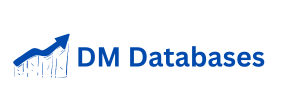In the ever-evolving landscape of the digital age, businesses are presented with an unprecedented opportunity to connect with their target audience and drive growth through digital marketing strategies. From small startups to established corporations, a well-structured digital marketing strategy has become imperative for success in today’s competitive market. This article delves into the key components that constitute a successful digital marketing strategy. 1. Clear Objectives and Goals: A robust digital marketing strategy begins with clearly defined objectives and goals. These should be specific, measurable, achievable, relevant, and time-bound (SMART). Whether the goal is to increase brand awareness, generate leads, boost sales, or enhance customer engagement, having a precise understanding of what you aim to achieve is fundamental. 2. Target Audience Analysis: Understanding your target audience is essential for tailoring your marketing efforts effectively.
Analyze demographics, psychographics behaviors and preferences to create
Buyer personas. These personas will guide your content creation and distribution strategies, ensuring that your messages resonate with the right people. 3. Comprehensive Content Strategy: Content lies at the heart of digital marketing. A well-crafted content strategy includes a Clipping Path variety of formats such as blog posts, videos, infographics, podcasts, and social media updates. Content should be relevant, valuable, and consistent, aligning with the needs and interests of your audience. SEO optimization is crucial to ensure your content is discoverable by search engines. 4. Search Engine Optimization (SEO): SEO is the process of optimizing your online content to improve its visibility in search engine results. This involves keyword research, on-page optimization, technical SEO, and building high-quality backlinks. Effective SEO enhances organic traffic and increases the likelihood of reaching potential customers.
Social Media Marketing Social media platforms are powerful tools
Building brand awareness, engaging with the audience, and driving traffic to your website. Each platform requires a tailored approach, depending on the audience’s preferences and behavior. Regular posting, interaction, and utilizing paid advertising can help DM Databas ES amplify your reach. 6. Pay-Per-Click (PPC) Advertising: PPC advertising allows you to display ads to users based on keywords they search for. Platforms like Google Ads and social media ad networks enable precise targeting and instant visibility. Strategic PPC campaigns can quickly generate traffic and conversions, especially when complemented by strong landing pages. 7. Email Marketing: Email marketing remains a cornerstone of digital marketing strategies. Building a subscriber list and sending targeted, personalized emails can nurture leads, drive sales, and maintain customer relationships. Automation tools can streamline the process by delivering relevant content at the right time.







